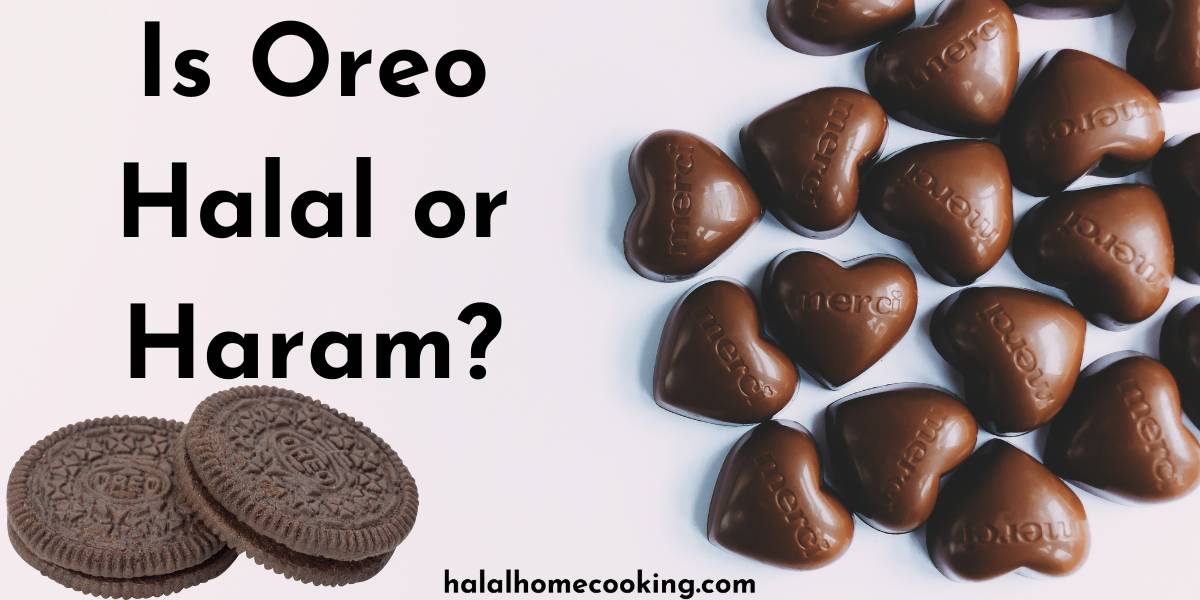Oreo cookies are undoubtedly a beloved and iconic treat known for their delicious taste and unique design. But when it comes to halal certification, there may be some confusion surrounding this popular snack.
Mondelez International, the parent company of Oreo biscuits, strives to cater to diverse markets around the world. With their commitment to meeting global dietary requirements, including religious food requirements like Halal certification in certain regions, they have taken steps towards making their products accessible to various consumers.
In some parts of the world, such as the Middle East and Pakistan, Oreo has obtained halal certification from reputable organizations that ensure its manufacturing processes adhere to strict Halal standards. This means that Oreos produced in these regions have been vetted by certifying bodies to ensure that no haram (forbidden) ingredients or methods are used in their production.
On the other hand, Oreos sold in North America and Europe may not carry a specific halal certification label. This does not necessarily mean they contain any haram elements. Rather, it reflects differences in distribution networks and market demands across different countries.
To determine if an Oreo product is halal certified or meets your dietary requirements as a Muslim consumer outside of designated regions with official certifications can require digging deeper into its list of ingredients. One notable ingredient is palm oil which raises questions among some Muslim consumers due to concerns regarding its possible association with non-halal animal fats such as pork fat or lard.
Additionally, Mondelez International has stated that they do not use any pork-related ingredients in their Oreo products worldwide. They have also confirmed that any natural and artificial flavors used do not contain alcohol or animal-derived ingredients.
However, it is always advisable to check the packaging or reach out to local authorities for clarification concerning the halal status of specific Oreo products available in your region. This way, you can ensure that your dietary needs align with your religious beliefs.
Is Oreo Halal in Sunni?
Oreo biscuits are halal and suitable for consumption by Sunni Muslims. Mondelez International, the company that produces Oreos, has confirmed that their Oreo products comply with halal standards and do not contain any haram ingredients such as pork fat or alcohol. The ingredients used in Oreo cookies, including wheat flour, chocolate, palm oil, and vanilla extract, are all of vegetarian origin. Oreo is also certified halal in many countries in the Middle East, including Pakistan and the United Arab Emirates. As a result, Sunni Muslims can enjoy various flavors of Oreos like strawberry cheesecake or chocolate brownie without any concerns regarding religious food requirements.
Is Oreo Halal in Shia?
There has been controversy surrounding the halal status of Oreo cookies, particularly in Shia communities. Mondelez International, the company that manufactures Oreo biscuits, has ensured that its products are halal-certified and suitable for consumption by Muslims. In the Middle East region, where Muslim dietary laws are strictly observed, Oreo is a popular snack due to its halal certification. The ingredients used in Oreos do not contain pork fat or any other haram (forbidden) substances. It is important to note that different variants of Oreos may have different certifications, so it is advisable to check the packaging for specific halal labels or certifications from reputable sources before consuming them.
Is Oreo Halal in Hanafi?
Oreo biscuits are produced by Mondelez International, a multinational food conglomerate. Their products, including Oreo cookies, are certified halal by various Islamic certification bodies in different regions. In the Hanafi school of thought, Oreo biscuits are considered halal due to their ingredients that do not contain any haram substances such as pork fat or alcohol. The main ingredients in Oreo biscuits include wheat flour, sugar, palm oil (plant-based), cocoa powder (in chocolate-flavored Oreos), and vanilla extract. Therefore, Hanafi Muslims can consume Oreo cookies without any concern regarding their halal status.
Some FAQs whether variations of Oreo are Halal or Haram.
Is Oreo Halal In Australia?
Yes, Oreo is certified halal in Australia.
Is Oreo Halal In France?
Yes, Oreo products are generally considered halal in France.
Is Oreo Halal In the UK?
Yes, Oreo products are generally considered halal in the UK.
Is Oreo Halal In Pakistan?
Yes, most variants of Oreos sold in Pakistan are certified as halal by local authorities.
Is Oreo Halal In India?
Some variants of Oreos sold in India may be suitable for consumption by Muslims as they do not contain any haram (forbidden) ingredients. However, they may not have official certification from Muslim organizations.
Is Oreo Halal In Nederland?
No official information is available to confirm if Oreos are halal in Nederland (the Netherlands).
Is Oreo Halal In Indonesia?
Yes, Oreos sold in Indonesia are officially certified as halal by the Indonesian Council of Ulama (MUI).
Is Oreo Halal In Algeria?
No, regular Oreos are not considered halal in Algeria due to the presence of non-halal ingredients.
Is Oreo Halal In Malaysia?
Yes, all variants of Oreos sold in Malaysia are certified as halal by the Malaysian Department of Islamic Development (JAKIM).

